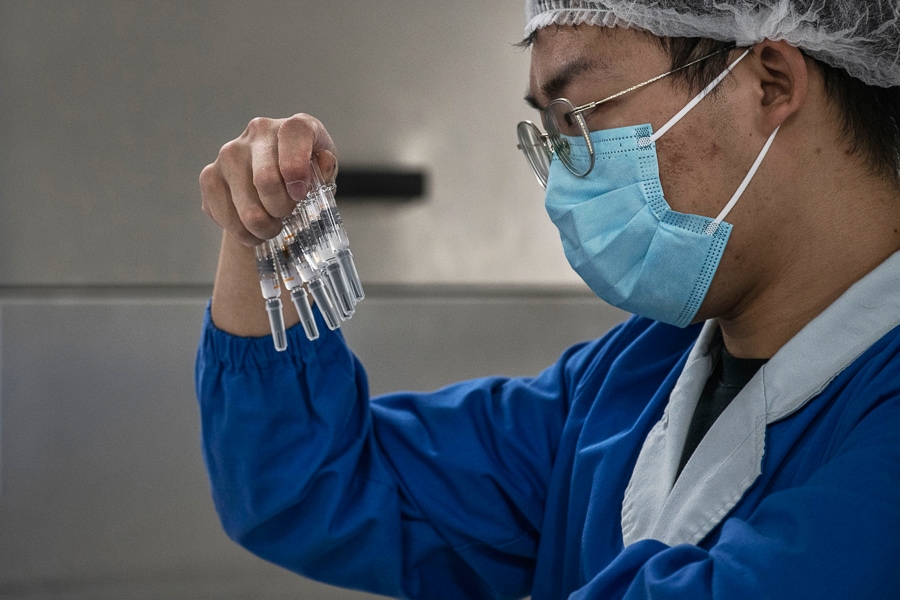
Vaccine Unproven? No problem in China, where people scramble for shots
Many say they are reassured because politicians and executives have been inoculated. But experts say the risks outweigh the benefits
 A worker checks syringes of the potential vaccine CoronaVac on the production line at Sinovac Biotech where the company is producing their potential COVID-19 vaccine CoronaVac on September 24, 2020 in Beijing, China. Sinovacs inactivated vaccine candidate, called CoronaVac, is among a number of companies in the global race to control the coronavirus pandemic. The company is running Phase 3 human trials in four countries and ramping up production to 300 million doses per year at a new manufacturing facility south of Beijing.
A worker checks syringes of the potential vaccine CoronaVac on the production line at Sinovac Biotech where the company is producing their potential COVID-19 vaccine CoronaVac on September 24, 2020 in Beijing, China. Sinovacs inactivated vaccine candidate, called CoronaVac, is among a number of companies in the global race to control the coronavirus pandemic. The company is running Phase 3 human trials in four countries and ramping up production to 300 million doses per year at a new manufacturing facility south of Beijing.
Image: Kevin Frayer/Getty Images
Ethan Zhang needed to get back to work. Work was in Ivory Coast, however, and since January the global coronavirus outbreak had stranded the 26-year-old translator in mainland China.
Then friends told Zhang of a way he could get his hands on what might be the world’s most coveted prize: a coronavirus vaccine. Though China’s vaccine candidates have not formally been proved safe or effective, officials have been injecting them into thousands of people across the country, ostensibly under an emergency-use policy. One such campaign, his friends said, was underway in the city of Yiwu in eastern China.
Zhang took a plane to Yiwu from Beijing that night. He stood in line for four hours outside a hospital. He paid $30. He got his shot.
And he expressed little worry that the substance that had been injected into his arm is still in the testing phase, an attitude that is stirring worry among global health experts.
“I feel more relieved now that I have protection,” Zhang said. “Since they’ve started using it on some people on an emergency-use basis, it shows that there’s a certain guarantee.”
©2019 New York Times News Service




